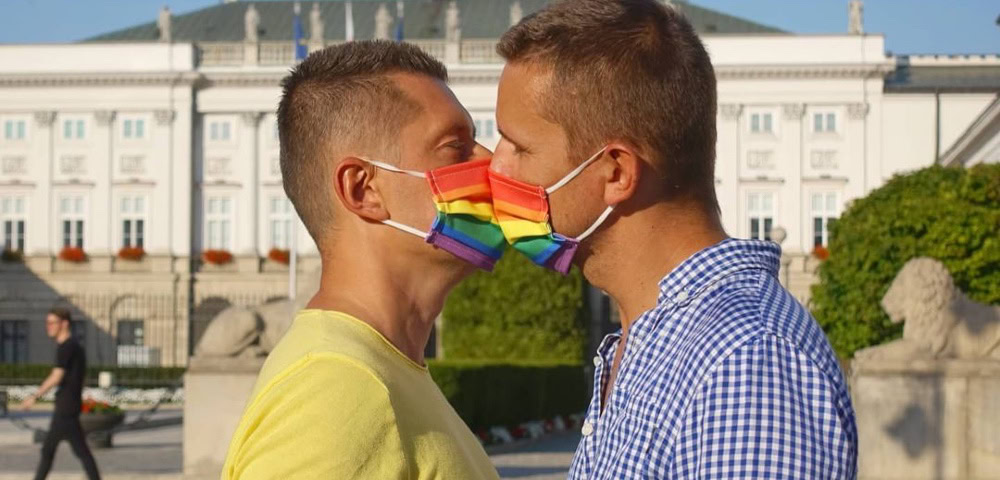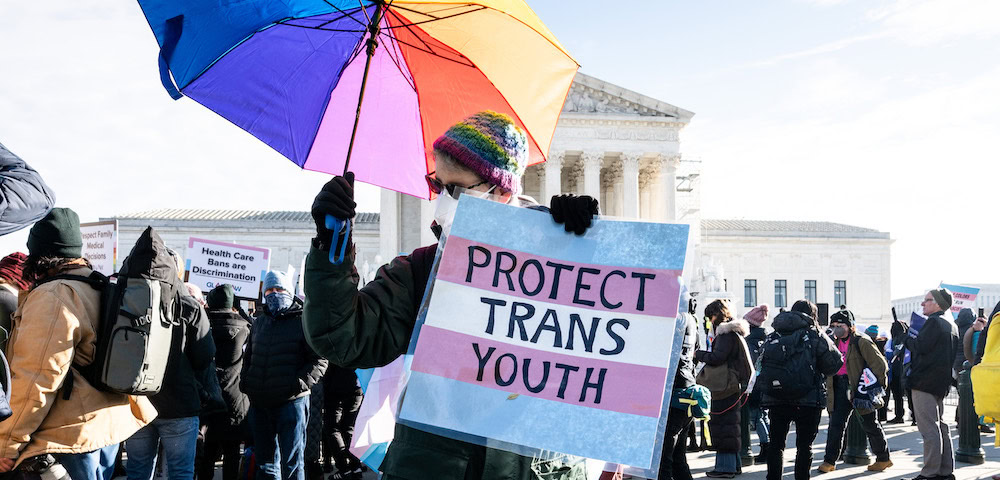
Polish Provinces Roll-Back ‘LGBT-Free Zones’ After EU Threat To Cut Funds

Four Polish provinces have revoked resolutions that had declared their regions as “LGBT-free zones” following threats from the European Union to block their funds.
The Polish voivodeships (provinces) of Podkarpackie, Lubelskie and Malopolskie voted on September 27 to repeal their self-designated labels as “LGBT-free zones” after the European Commission threatened to pull €126 million in funding. The funds were earmarked to the regions as part of the European Union’s REACT-EU program.
The province of Świętokrzyskie was the first to repeal their “LGBT-free zone” designation. On September 22, the province adopted a new resolution saying it would “respect the centuries old tradition and culture of the Republic of Poland as well as equality and fair treatment.” A fifth region, Łódzkie, is currently debating whether to drop its own declaration.
In 2019, around 100 municipalities, primarily in south and Southeastern Poland, had passed LGBT-free zone declarations. The resolutions, while perceived as largely symbolic, capped a wave of anti-LGBTQI+ sentiment, which swept across Poland. The Catholic organisation Ordo Iuris was a strong force behind the creation of the resolutions.
Violation Of EU Anti-Discrimination Laws
Zbigniew Ziobro, Poland’s Minister of Justice had in a news conference on September 24 urged “regional councils not to succumb to blackmail. If someone is counting on the EU to stop, they’re wrong. We can expect more unlawful actions if we succumb to this kind of economic terrorism.”
The creation of “LGBT-free zones” was initially supported by Poland’s ruling Law and Justice Party, a socially conservative party with a Christian, right-wing ideology. The government, in an about face move, encouraged the regions to end their resolutions.
The European Commission had previously warned the regions that the “LGBT-free zone” labels may be in violation of EU laws covering discrimination based on sexual orientation.
Lubelskie and Podkarpackie have now passed new resolutions. Podkarpackie now refers to itself as “a region of well-established tolerance”, while in Lubelskie, officials passed a new measure entitled, “On the protection of fundamental rights and freedoms”.
Provinces Faced Loss Of Subsidies
Uchwały hańby, przeciwko ludziom LGBT utrzymały się w mocy 882 dni w województwie Małopolskim i 854 dni województwie Podkarpackim. Nie możemy zapomnieć o tym co nas spotkało. Idziemy do przodu ale pamiętamy. Nadal jest ponad 40 stref wolnych od LGBT. Walczymy✌️
— Bart Staszewski (@BartStaszewski) September 27, 2021
Polish LGBTQ+ activist Bart Staszewski tweeted, “The possibility of losing gigantic Euros in subsidies has turned homophobic councillors into lambs of tolerance. What a transformation!”
Staszewki told Star Observer that it was the “solidarity of Queer people [and] hard work of activists [which] made enough pressure on politicians, with tremendous help from the European Commission. We are on a clear path to withdraw all LGBT-free zones, and I can promise we will make it.”
The declarations were introduced as part of a larger plans by Polish conservatives to reinforce “traditional” values in the largely Catholic nation, and were made as part of an effort to stem a spread of “LGBTQ ideology,” across Poland.
EU Country With The Worst Record On LGBTQI+ Rights
European Union leaders had called the resolutions discriminatory, and the European Parliament passed a resolution in March 2021 in which the entire 27-member European Union was designated as a LGBTQ+ “Freedom Zone.”
The incendiary rhetoric had led Ursula von der Leyen, the President of the European Commission, to state, “Being yourself is not your ideology, it’s your identity…LGBTQI-free zones are humanity free zones. And they have no place in our union.”
Poland, a largely Catholic nation, where same-sex relationships have no legal recognition, was named by ILGA Europe in its 2020 Europe Rainbow Map and Index, as having the worst record for LGBTQ+ rights in Europe, a rank it continues to hold in 2021.
“Far from being merely words on paper, these declarations and charters directly impact the lives of LGBTI people in Poland,” Dunja Mijatović, the Council of Europe Commissioner for Human Rights, said in December 2020.
If you feel distressed reading the story, you can reach out to support services.
For 24 hour crisis support and suicide prevention call Lifeline on 13 11 14
For Australia-wide LGBTQI peer support call QLife on 1800 184 527 or webchat.








